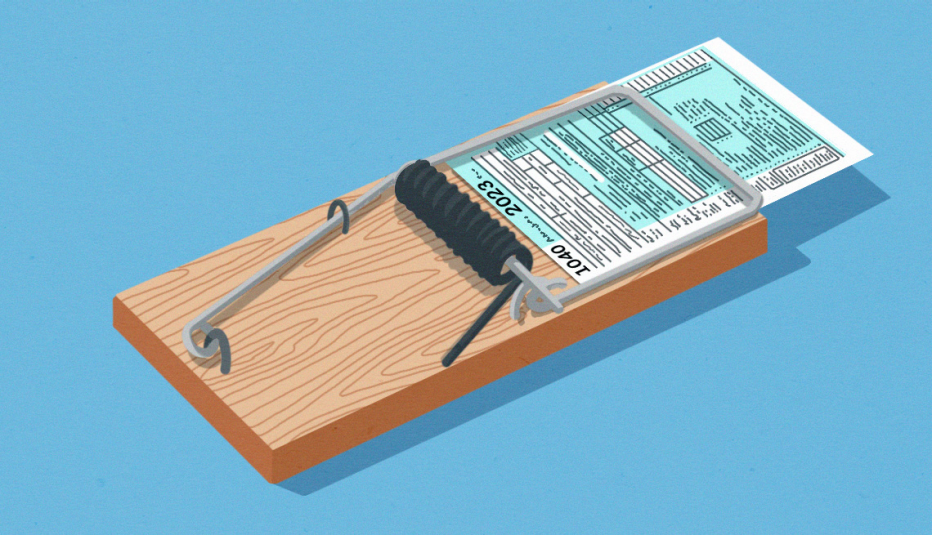AARP Hearing Center


Tax season can be scary enough without the specter of unscrupulous tax preparers.
Shady operators that the Internal Revenue Service (IRS) calls “ghosts” don’t have a legally required Preparer Tax Identification Number (PTIN), unlike nearly 850,000 U.S. tax professionals. They also don’t sign the returns they work on, leaving their clients responsible for any filing falsehoods.
It’s more than just a paperwork problem. Ghost preparers set up shop around tax time in pop-up offices and pitch their services at community gathering places such as churches or on social media. They promise big refunds, often basing their fees on a percentage of the refund. To inflate what you get back from Uncle Sam — and what they get from you — they might invent income to falsely claim tax credits or fabricate deductions such as business, education or medical expenses.
Many scammers then disappear with your fee, and, because your name is on the return, it’s your responsibility to fix the “mistakes.” That means that, along with paying the taxes you actually owe, you’re liable for any penalties and interest that accrued while you were in arrears.
Some ghost preparers take the scam a step further, stealing refunds outright by routing them into their own bank accounts. Other perpetrators of tax prep fraud work online, sending phishing emails that appear to be from tax pros, or creating impostor websites that claim to prepare and e-file your return.
Recent tax-prep scams
The latest IRS report on tax-prep scams includes what the agency calls the “dirty dozen” — its “list of 12 scams and schemes that put taxpayers and the tax professional community at risk of losing money, personal information, data and more.” Here are a few versions of those scams:
- Scammers offering to help taxpayers set up their IRS online account at IRS.gov. Their goal is to steal personal information, asking for the individual’s Social Security number and other sensitive data, says the IRS, which notes that it’s simple to set up your own account.
- Self-described tax professionals promoting large refunds related to the Employee Retention Credit (ERC), a COVID-related tax credit, to people who are actually ineligible. They’ll post ads, the IRS says, that “exist solely to collect the taxpayer’s personally identifiable information in exchange for false promises. The scammers then use the information to conduct identity theft.”




































































More on Scams and Fraud
Watch Out for Tax Fraud
3 simple rules to protect your identity and your money
IRS Impostor Scam
Protect yourself from IRS scam calls